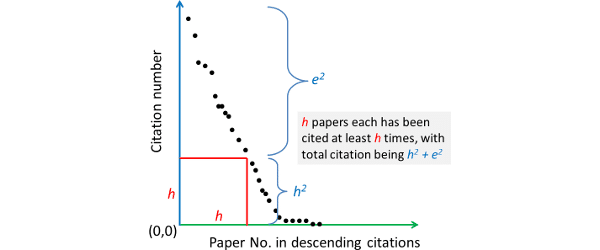In my current position, I had the opportunity to hire a new R&D scientist to join the team. I was excited at being able to build my team and take my time to find the perfect fit for our company.
My experience in the process of hiring gave me a new perspective on all the reasons why people fail in interviews, or even to get them at all, and what is the recipe for a successful job application.
I thought I would share with you some of these new insights and maybe I can spare you from making some of the common mistakes people made in applying for my job.
Here’s my advice:
1. Read the job description and write a cover letter that is specific to that job
Common sense, right? Not as far as I’ve seen.
Many applicants sent us an apparently generic cover letter that was presumably used to blast numerous hiring managers. Often, nothing in the cover letter mentioned any of the key words from our ad.
And even worse, many applicants had absolutely no experience all in the area of research we asked for. It was obvious they never visited our web page or even read the ad.
The best cover letter tells why they are the best candidate based on the specific qualifications – make sure yours fits the bill.
See our article on killer cover letters for more tips.
2. Visit the website before applying and make sure you have an understanding of what the company does.
If you don’t thoroughly read the website, you won’t really understand the job you are applying for and, worst of all, you demonstrate a lack of interest in the company.
This lack of knowledge will be apparent in your application, or glaringly obvious in the interview if you are called for one and kill your chances of getting the job.
Make sure you read the web page, understand the company; what it does, where it came from and where it’s going. Don’t just scan it, get as much information as you can and make sure you can impress the hiring manager every step of the way.
3. Know why you want to work for that company
One question we always ask is: why do you want to work for us?
Is it because you need something local? Is it because you want to get the hell out of wherever you are now? Is it because you love our products and love our culture?
You need to have an answer to this question and the answer needs to be positive and needs to tell the hiring managers that you believe in our mission and want to be a part of it.
Surprisingly, some people could not answer this question, or answered it in a way that made us feel that we were something to hold them over until a better position came along.
I’ll let you guess whether or not they got the job.
4. Make it clear: “I want to work for you”
What the hiring people and your new colleagues want is someone that really wants to be part of the team. They want someone who is as passionate about the same things they are.
Are you a person who will fit in and get along with others? You need to show it.
The key is that if you think the job you are interviewing for is the perfect position for you, then say so, and say why.
Make it clear that you really want this job above all others you have applied to and want to be on this team.
5. Be positive about yourself and your abilities
No candidate actually matches every qualification on the list – employers don’t expect you to. If they list 10 “nice-to-have” qualities and you have 5 of them, apply.
For example, if you have experience searching for and writing patents but no experience in presenting at conferences, let them know your strengths. Do not focus on the qualifications you don’t have or any other weaknesses for that matter.
In fact you should never mention your weaknesses unless and until they are specifically brought up in the interview. If you have a specific weakness that you know may be a problem for the job, come to the interview armed with good suggestions on how you could overcome it and examples of how you have overcome similar (or other) hurdles in the past.
This is the attitude that a hiring manager wants to see: someone who is not afraid to try new things and willing to learn and push themselves past their comfort zone.
6. Be friendly and energetic… and make eye contact
Especially in small research groups or companies a major emphasis is (and should) be placed on how well any new employee would fit with the personalities and culture in the group.
It is impossible to predict exactly what different groups are looking for in this regard as all are different but something virtually everyone will be attracted to is a friendly and energetic approach.
So if you get an interview, be friendly; look people in the eye, smile where appropriate and show that you have an enthusiasm for life that you will bring to the job.
Of course you are likely to be nervous so you should give yourself a pep-talk before you go to the interview to get yourself in the right frame of mind and having something as simple as being friendly to focus on can help you get over your nerves.
7. Salary negotiation- a tricky area
It was shocking to me the amount of salary some post-docs wanted for their first job. Salary can range depending on the size of the company and the position. Beginning PhD scientist positions with no industry experience will range between $65,000-85,000 US. [Nick’s note: it’s way less in the UK – you can probably expect something like 20-25K, depending on subject and geographical area]
For a small company with less than 100 people, it will be on the low end and for a large company with >1000 people, it will likely be on the high end. Some start-ups with venture capital can also offer attractive salaries.
Your salary will depend on your degree, experience, and whether you have specific expertise in a technique or area that is highly valued, and if you have previous industry experience, you can negotiate a higher salary.
A person coming from academia to industry has a big adjustment to make in their mindset toward their research so hiring company knows there is going to be more training around a company mindset and a slower learning curve.
The company is taking a big risk in hiring someone with no experience in an industrial lab just as you are taking a risk in making the jump out of academia in exchange for the big salary.
When asked for your salary requirements, say instead “the going rate” and then see what is proposed to you. It is ok to counter-offer if you amount is below your expectation but keep it within $5000-$10,000.
Asking for too much more gives the impression that you will not be happy with your salary and will consider leaving the first chance you get.
Summary
The job interview process is a stressful experience. It’s normal to not have much practice at it since you want to stay as long as possible at any position you have. The most important thing to remember is to be confident in yourself. You would not be applying if you didn’t feel you could handle the job and that is what the interviewers want to see. A person who is a team player, a fast learner, and a hard worker can get almost any position they set their sights on.






